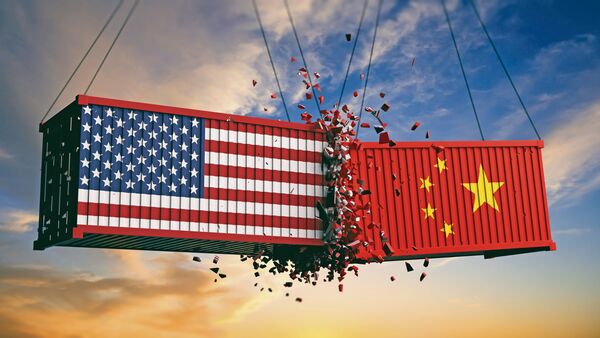Trade Tensions Escalate: China Halts Boeing Deliveries
In a significant escalation of the ongoing trade tensions between two of the world’s largest economies, China has instructed its airlines to stop accepting any further deliveries of Boeing aircraft. This move comes as a direct response to the United States’ decision to impose hefty tariffs of up to 145% on Chinese goods.
Beijing has not just stopped at aircraft; Chinese carriers have also been directed to pause purchases of aircraft-related equipment and parts from US companies. This development, reported by sources like Bloomberg, underscores the heightened tensions and forms an important chapter in the trade war saga.
Blow to Boeing
The decision by China represents a substantial setback for Boeing, whose shares slipped by 3% in premarket trading following the announcement. The company, which views China as one of its largest growth markets, now faces increased pressure as its European rival, Airbus, already holds a dominant position in the region.
Moreover, Shanghai-based Juneyao Airlines has postponed the delivery of a Boeing 787-9 Dreamliner due to the ongoing tariff conflict. The delivery of this $120 million aircraft, originally scheduled for the next three weeks, has now been put on hold, endangering the airline’s plans to expand its routes to European destinations such as Brussels and Athens.
Increased Maintenance Costs
China’s decision to stop purchasing aircraft components from US suppliers is expected to lead to a surge in maintenance costs for planes operating within its borders. Airlines might need to seek alternative sources for parts or prepare for higher expenses, contributing to challenges in operational efficiency and safety standards.
The intensifying trade war, triggered by US President Donald Trump’s trade policies, has seen China escalating tariffs on US imports by 125% as retaliation, compounding the strain between the two nations.
Assistance and Alternatives
To assist airlines bearing these increased costs, the Chinese government is contemplating measures to support those who lease Boeing jets. The cost implications of a 125% tariff inclines airlines towards exploring other manufacturers, including Airbus and domestic manufacturer COMAC.
China’s major airlines—Air China, China Eastern Airlines, and China Southern Airlines—have plans to receive a significant number of Boeing planes between 2025 and 2027. However, financial burdens could propel a shift in these orders.
Escalating Trade Tensions
Analysts caution that the ongoing tariff battle may severely disrupt global commerce, with the US-China trade valued over $650 billion last year at grave risk. The potential halt in goods trade could have far-reaching consequences on global markets.
Despite the growing tension, President Trump hinted at the possibility of a deal with Beijing, though details and agreements remain undisclosed. The situation adds layers of complexity to an already tumultuous trade relationship.
Stay updated with the latest developments in the trade dispute and its global implications only on fintechfilter.com.







